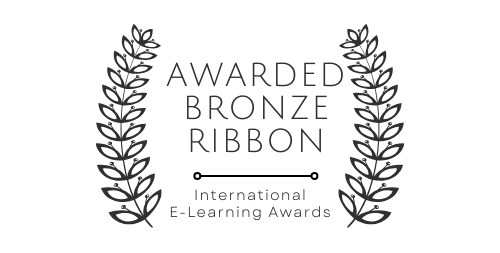Monitoring and Evaluating Progress for Distance and Online Learning

About this Learning Experience
Chances are, if you are designing and delivering instruction for distance and online learning, you are also monitoring and evaluating learner progress.
Cost: $75
This module is intended to introduce you to different types of assessment and examples of assessment that work well for monitoring and evaluating progress in distance and online learning through exploration and application of best practices.
This video provides a brief introduction to the Monitoring and Evaluating Progress for Distance and Online Learning.
Intended Audience
This module can be beneficial for anyone who is interested in learning more about designing instruction for distance and online learning. We developed the content with these specific job roles in mind:
Learning and Development (L&D) — Anyone who works in fields related to employee learning and professional development needs to have an understanding of how learning takes place online, and how that learning is different from face-to-face instruction. This includes curriculum developers, instructional designers, training and development coordinators, and talent managers. L&D professionals need to be flexible and ready to provide training and resources to employees, no matter where they’re working.
Trainers and Teachers — Both classroom teachers and workplace trainers understand the processes of learning when it happens face-to-face. Online learning involves a shift in perspective, both in how content is delivered and in how the learner interacts with the content. Taking instructional materials designed for face-to-face instruction and preparing them for use in an online environment is difficult and requires thinking about motivation and engagement in new ways.
Human Resources Professionals — As more and more workplaces embrace flexible work hours, nontraditional workplace environments, and an increasing percentage of remote workers, online training is becoming the norm. Taking legally mandated or industry-specific compliance training online can be a daunting task. HR professionals need to know how to measure the effectiveness of the training both to keep employees safe and to ensure organizations stay in compliance with industry standards and state and federal laws.
Learning Objectives
In this module you’ll:
- Increase knowledge and skills relevant to three types of assessment – diagnostic, formative, and summative.
- Describe examples of assessment.
- Identify the advantages and disadvantages of assessment examples.
- Discuss the relevance of creating and using rubrics.
- Determine how to select the appropriate type of assessment to match your learners, learning conditions, and learning contexts for monitoring and evaluating progress in distance and online learning.
Timeline
Approximately 2 hours of instruction to be completed during a 4 week period of time.
Format
This online module provides an asynchronous (does not take place in real-time), self-paced learning experience available 24/7 that allows four weeks for completion. You will engage with self-knowledge checks, videos, and interactive activities designed to bring the content to life in a dynamic, flexible format without the constraints of a scheduled class meeting time.
Certificate
You will earn a non-credit academic certificate upon completion of the online module. Our non-credit academic certificates are designed for professionals who complete a minimum number of equivalent contact hours of online education modules with or without continuing education units (CEUs), in a select topic area.
Module Designers/Developers
This module is part of the Center on Education and Training for Employment’s online learning experiences. It was created by Patricia Hughes-Fitzgerald, Adrienne Boggs, and Alicia Willis.
Cost: $75
Questions? Contact Marcie Kamb at kamb.3@osu.edu.

